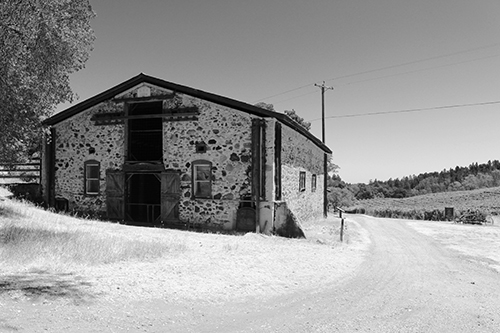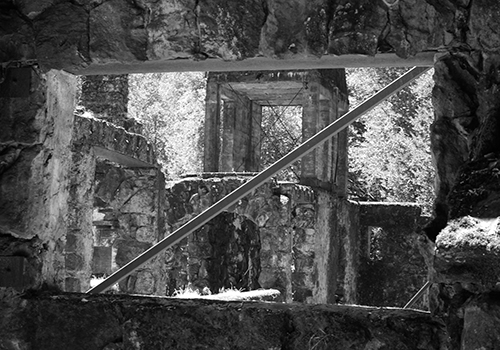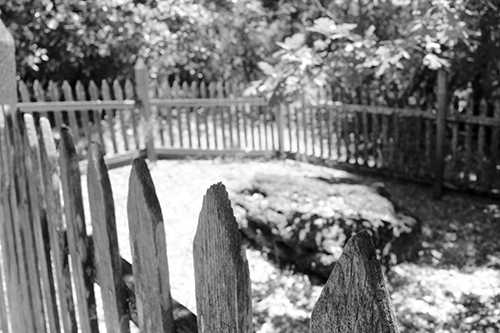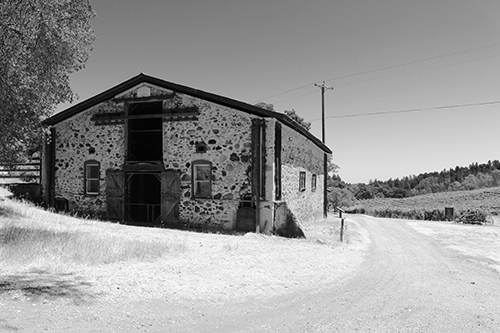“This field blazes on the rim of the Piedmont Hills. Beneath lies all the world. In the distance, across the silver-sweep of bay, San Francisco smokes on her many hills like a second Rome. Not far away, Mount Tamalpais thrusts a rugged shoulder into the sky; and midway between is the Golden Gate, where sea mists love to linger. From the poppy field we often see the shimmering blue of the Pacific beyond, and the busy ships that go forever out and in.” – Jack London

Though it was cut short, Jack London’s life held more adventure within its confines than could ever fit into a comprehensive novel. As a young man, London once wrote that he was intent on not merely existing, but living, and London held true to this philosophy as he traversed the globe. He covered the Russo-Japanese War as a correspondent, sailed a ship of his own design around the world, and came face-to-face with starvation in the Alaskan wilderness. Standing in the middle of San Francisco after the 1906 earthquake, London watched as the last leg collapsed out from under the flame-engulfed city. In the national weekly, he would write a simple account of the event, “San Francisco is gone. Nothing remains of it.”
In his novels, London had a similar affinity for tales of chaos and survival. From Call of the Wild to his best known short story, “To Build a Fire,” the writer’s strength resided in his ability to pinpoint the fragility of human nature by thrusting his characters into the uncivilized world. But in a small pocket of Marin County, London found something entirely different — a refuge of tranquility.
“Of all the places of the world which I have visited; Northern California, and especially Marin County is, in my opinion, the real paradise on earth. The Riviera, the sights of Egypt and the wonders of India are but the works of mankind, while here Mother Nature has lavished her best efforts.” – Jack London

London was born in San Francisco and grew up on a farm in Livermore. He spent a large portion of his life skirting the edges of Marin, observing it from across the San Francisco Bay. In Berkeley, where his family briefly resided, ten year old Jack frequented the Oakland Public Library with his father. It was later in his life, in the neighboring town of Piedmont that he befriended San Francisco poet laureate George Sterling — his neighbor and eventual closest friend. The two writers mutually inspired one another and remained close even after London moved back to Oakland.
Mid-career, London is rumored to have written Sea Wolf in a house on the south end of Bridgeway in Sausalito, looking out at the same body of water on which the story’s events transpire. The house itself is commonly referred to as the Castle-By-The-Sea, and while the duration of London’s stay at the “Castle” is often disputed, there has been an ongoing effort to preserve the building for historical purposes. The novel, Sea Wolf, opens with the protagonist aboard a San Francisco-bound ferry that crashes and starts to sink. In the first few sentences, London briefly describes the character who the protagonist had boarded the ferry to visit.
“He kept a summer cottage in Mill Valley, under the shadow of Mount Tamalpais, and never occupied it except when he loafed through the winter months and read Nietzsche and Schopenhauer to rest his brain.” – Jack London (Sea Wolf)

Most of London’s dwellings around the Bay Area were intended to be impermanent, but his final resting place was fundamentally different. After a life filled with motion and chaos, London purchased a 129 acre farm in Glen Ellen, north of Sonoma, and began to develop it. “Beauty Ranch,” as he came to call it, had all of the makings of a utopia. There were hiking trails that wove around the parcel of land, tree tunnels, and an idyllic mountain range that stretched into the background. Here he spent hundreds of hours writing in his cottage. During these years, London produced some of his best-selling novels, including The Valley of the Moon — a tribute to Glen Ellen itself. But for London, it seemed tragedy was inescapable. Alcoholism and marital turmoil overshadowed the commercial success of London’s writing and within the year, the dream house that he and his wife had intended to move into was destroyed in a fire. London would die a few years later from kidney failure.
The adventurer’s body now rests under an unmarked stone atop a knoll in the Jack London State Park — a fitting burial for a man who spent his life chasing experience and beauty over grandeur. Today, countless buildings, parks and streets bear Jack London’s name, but it is by the natural beauty of his home and beloved Bay Area that the talented writer is best remembered.


